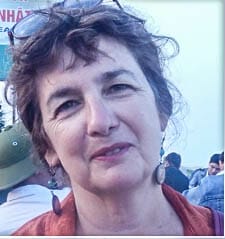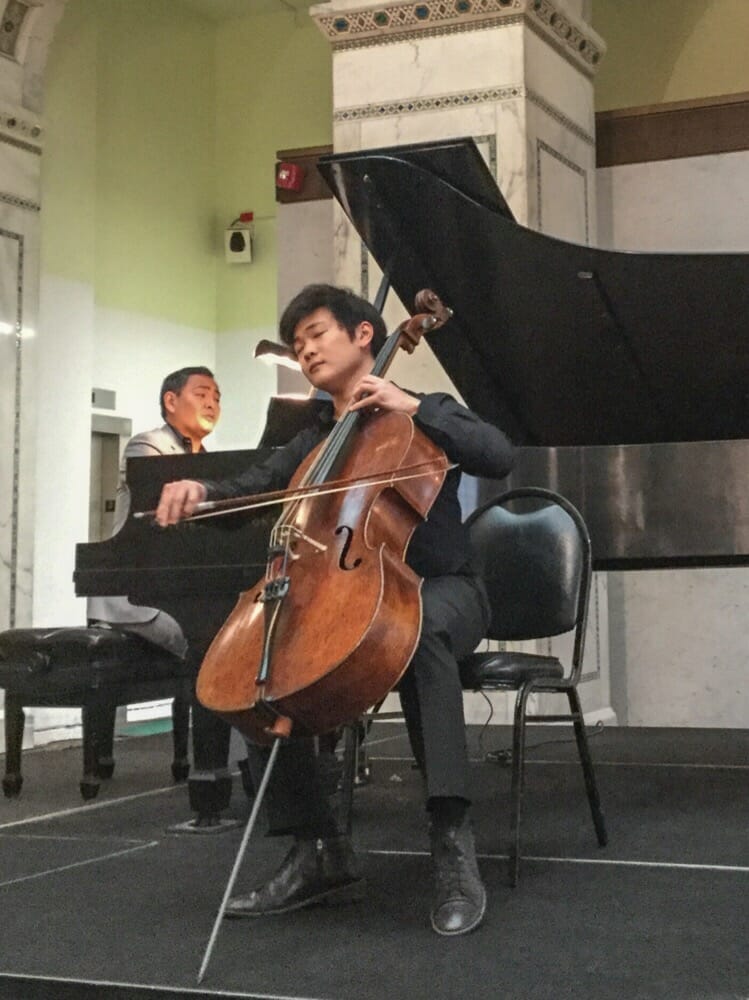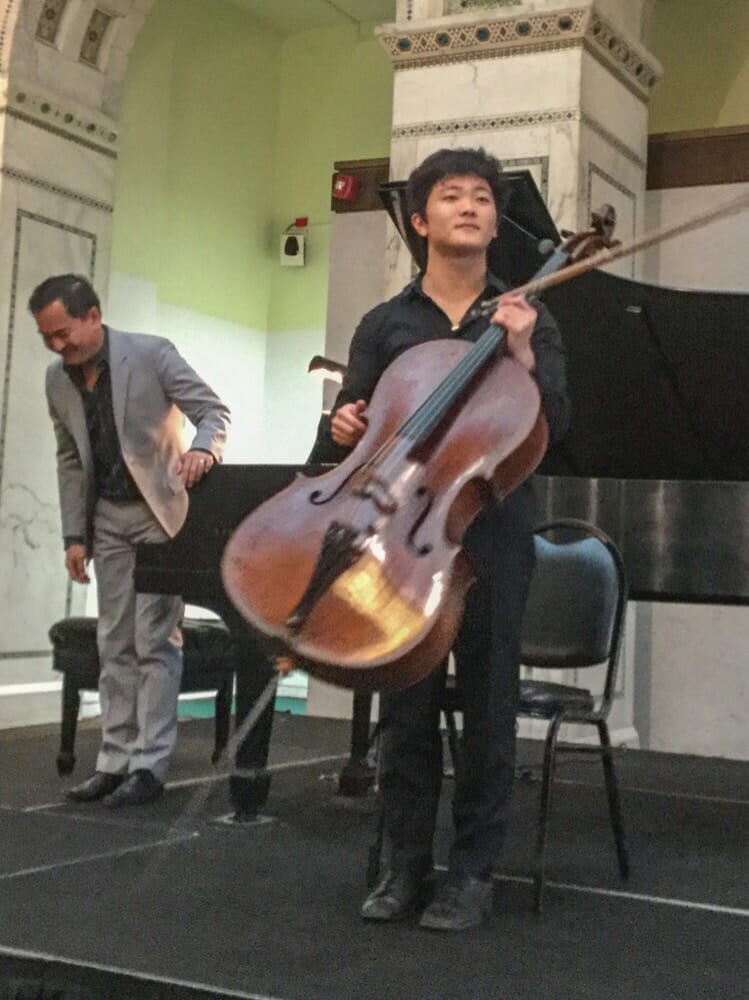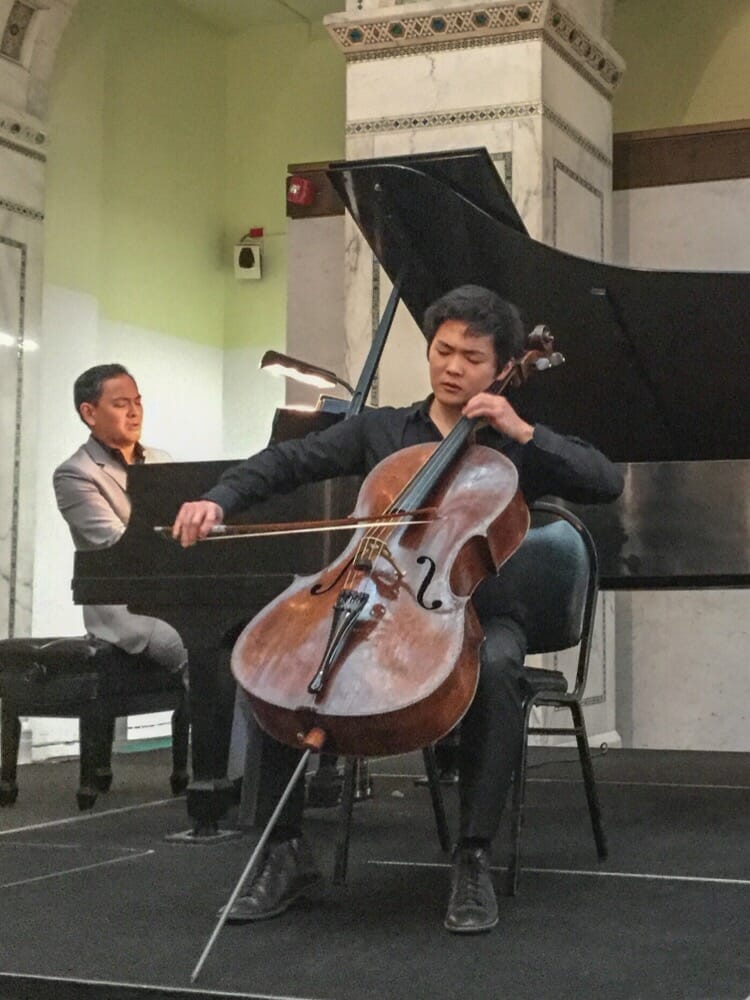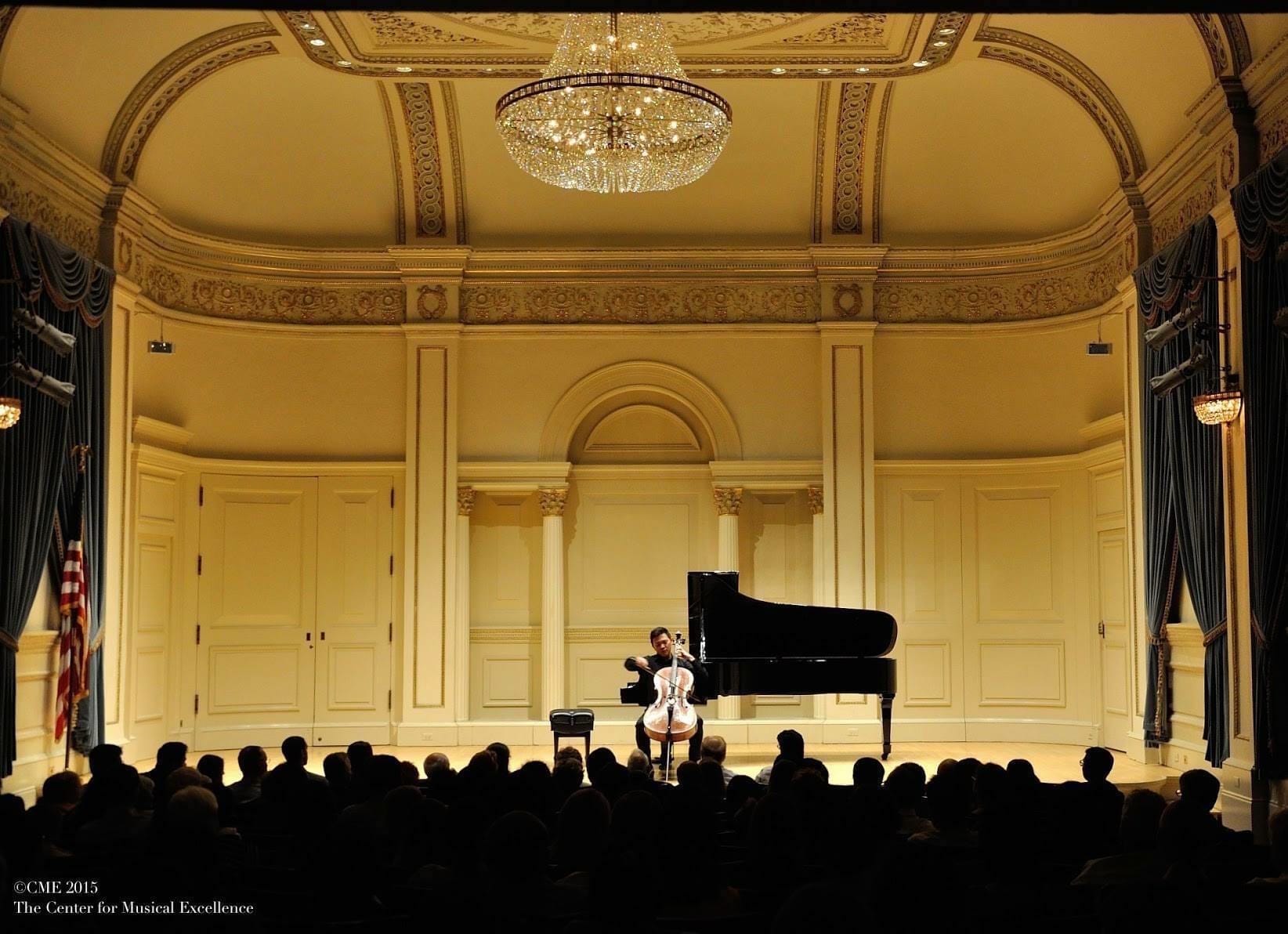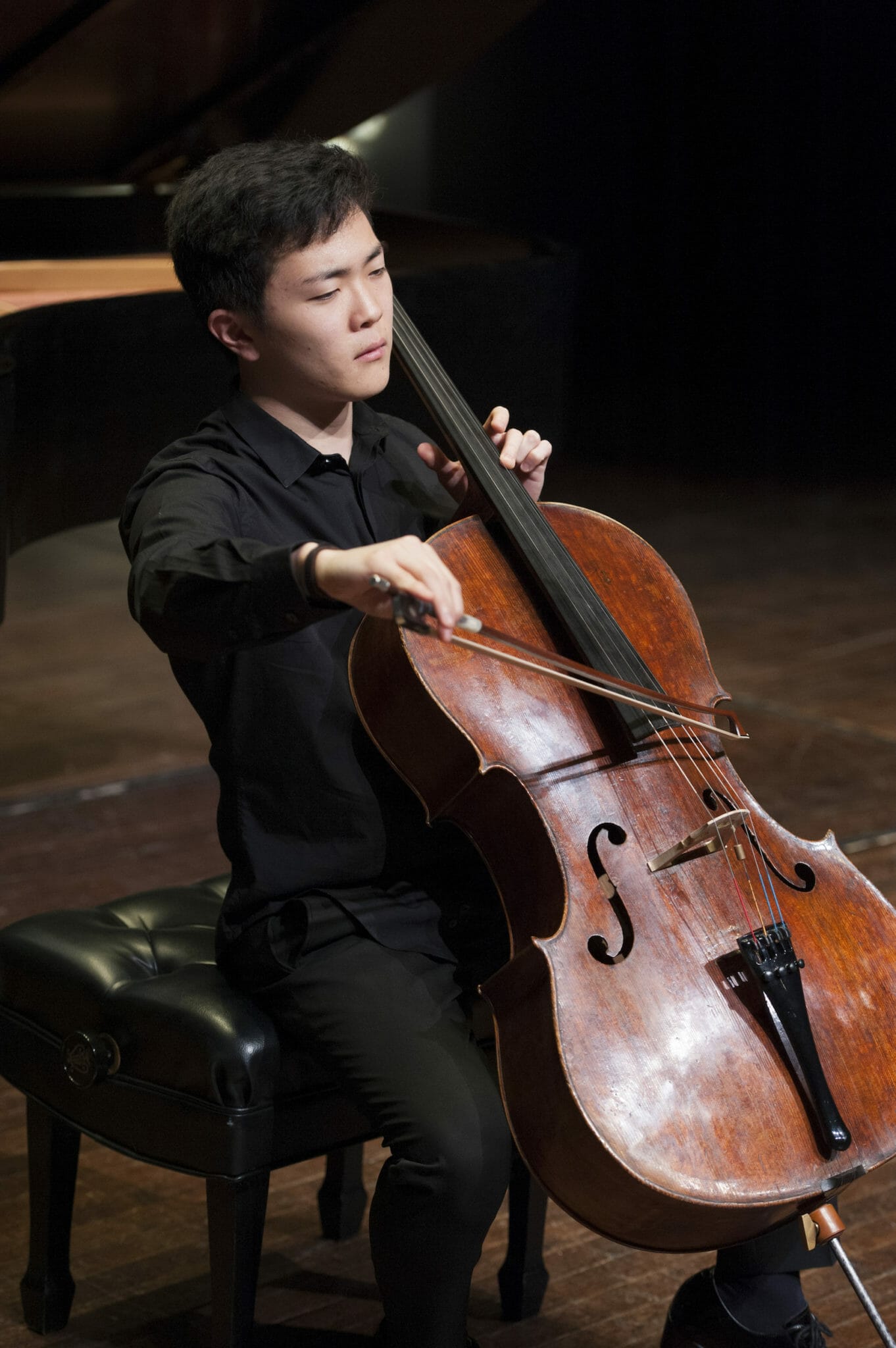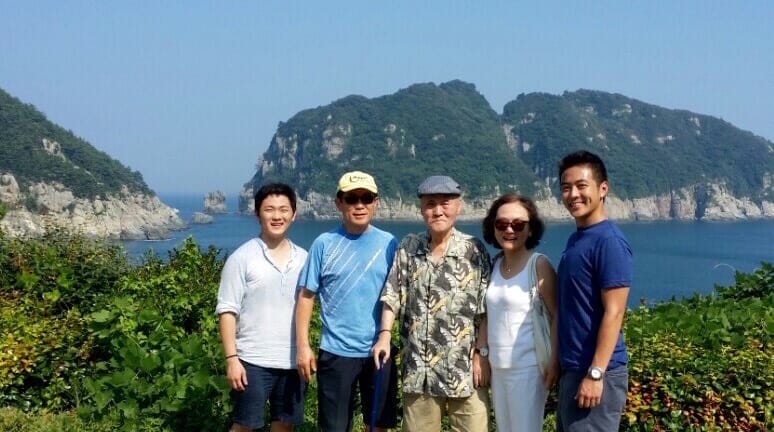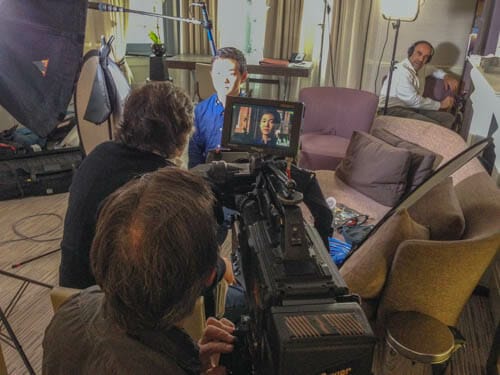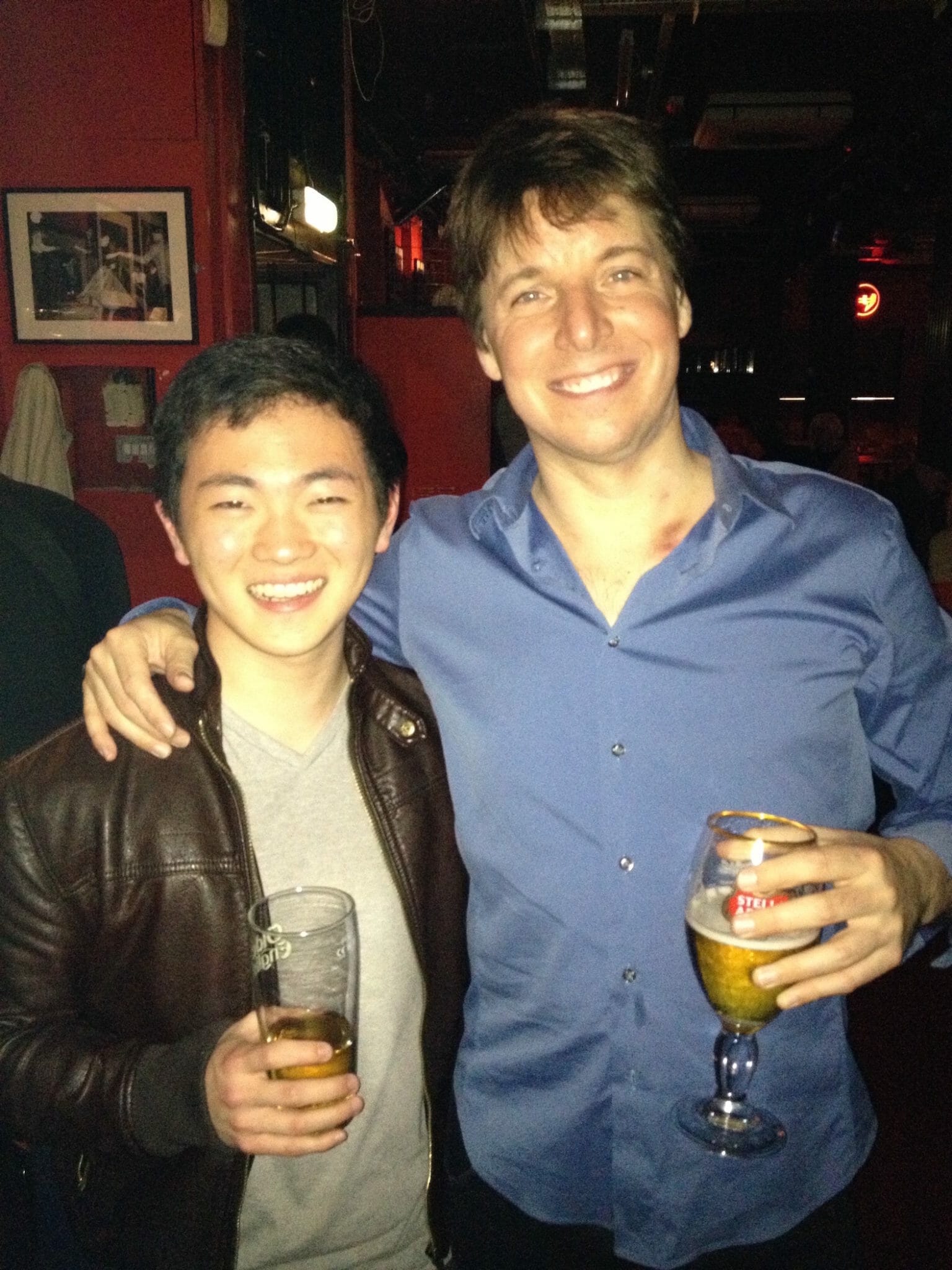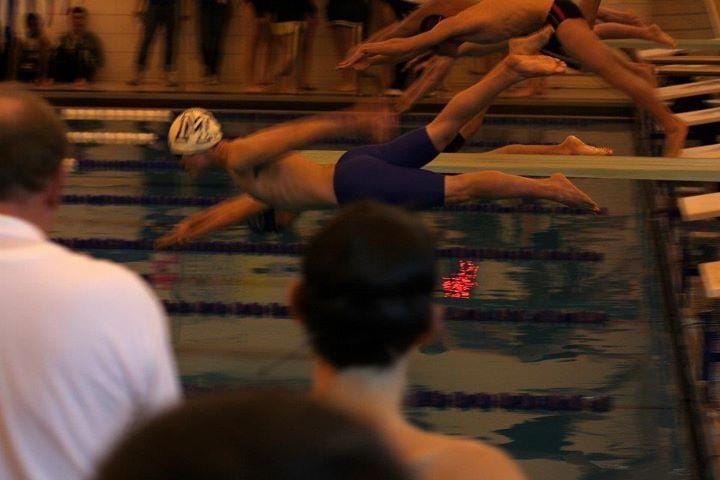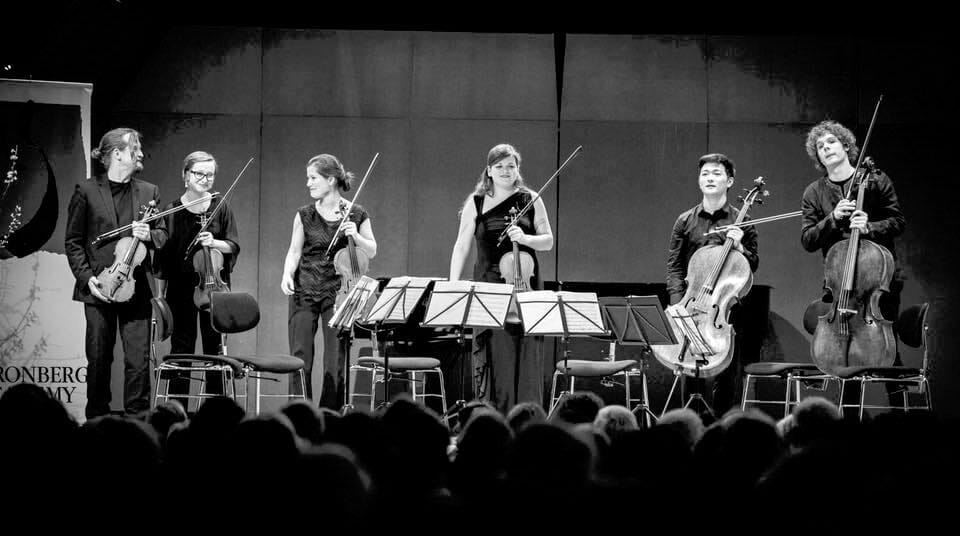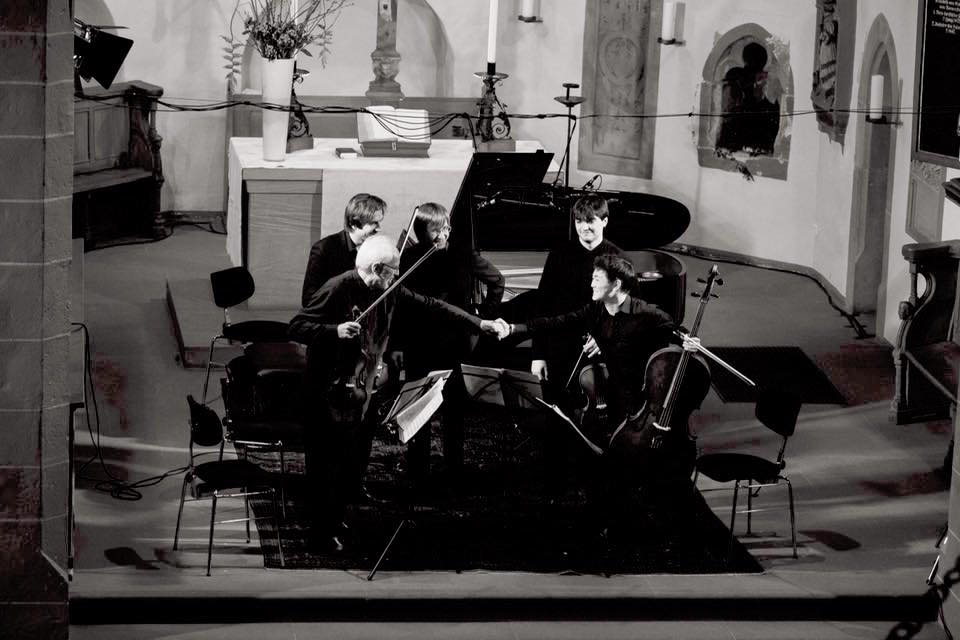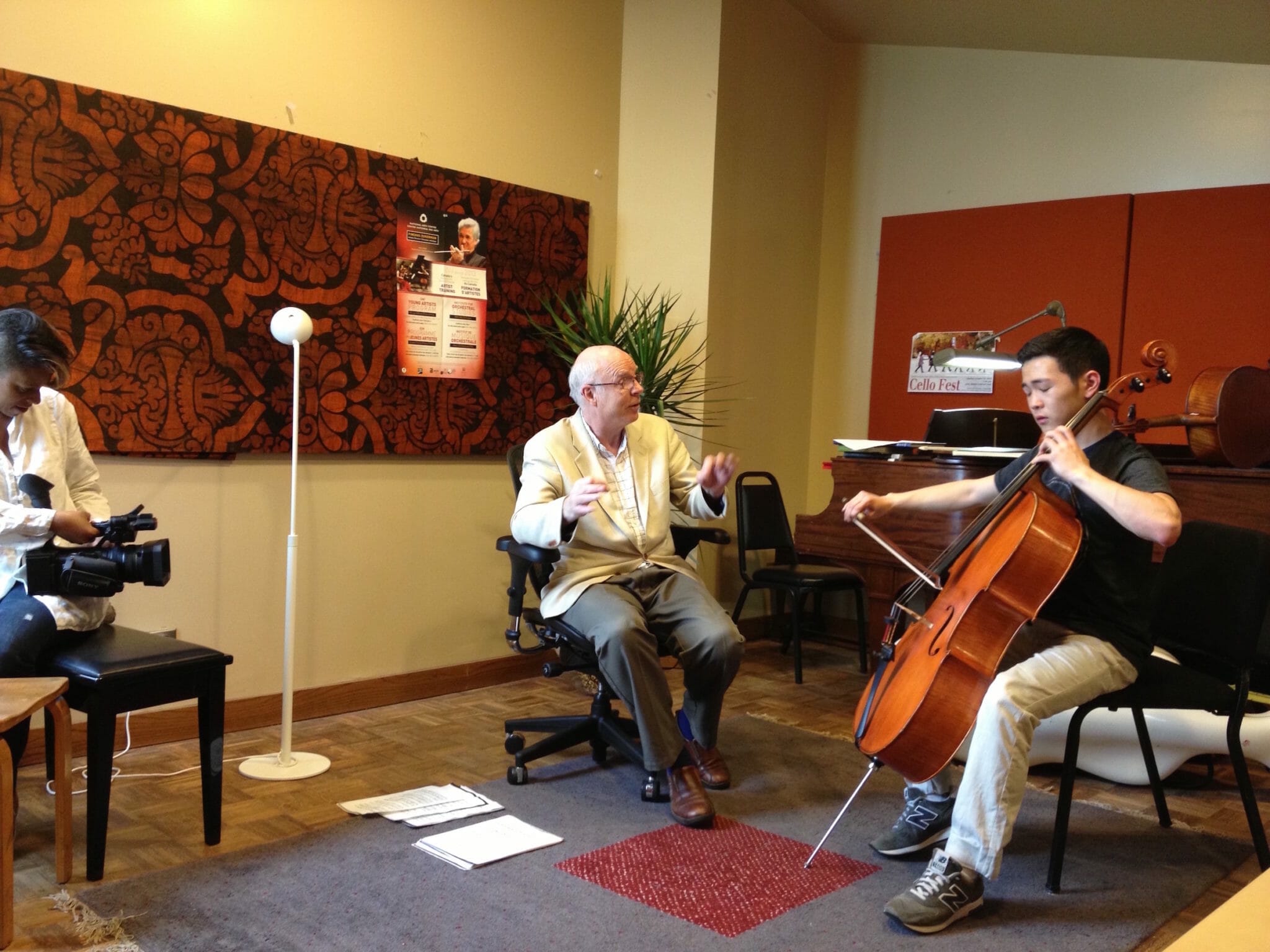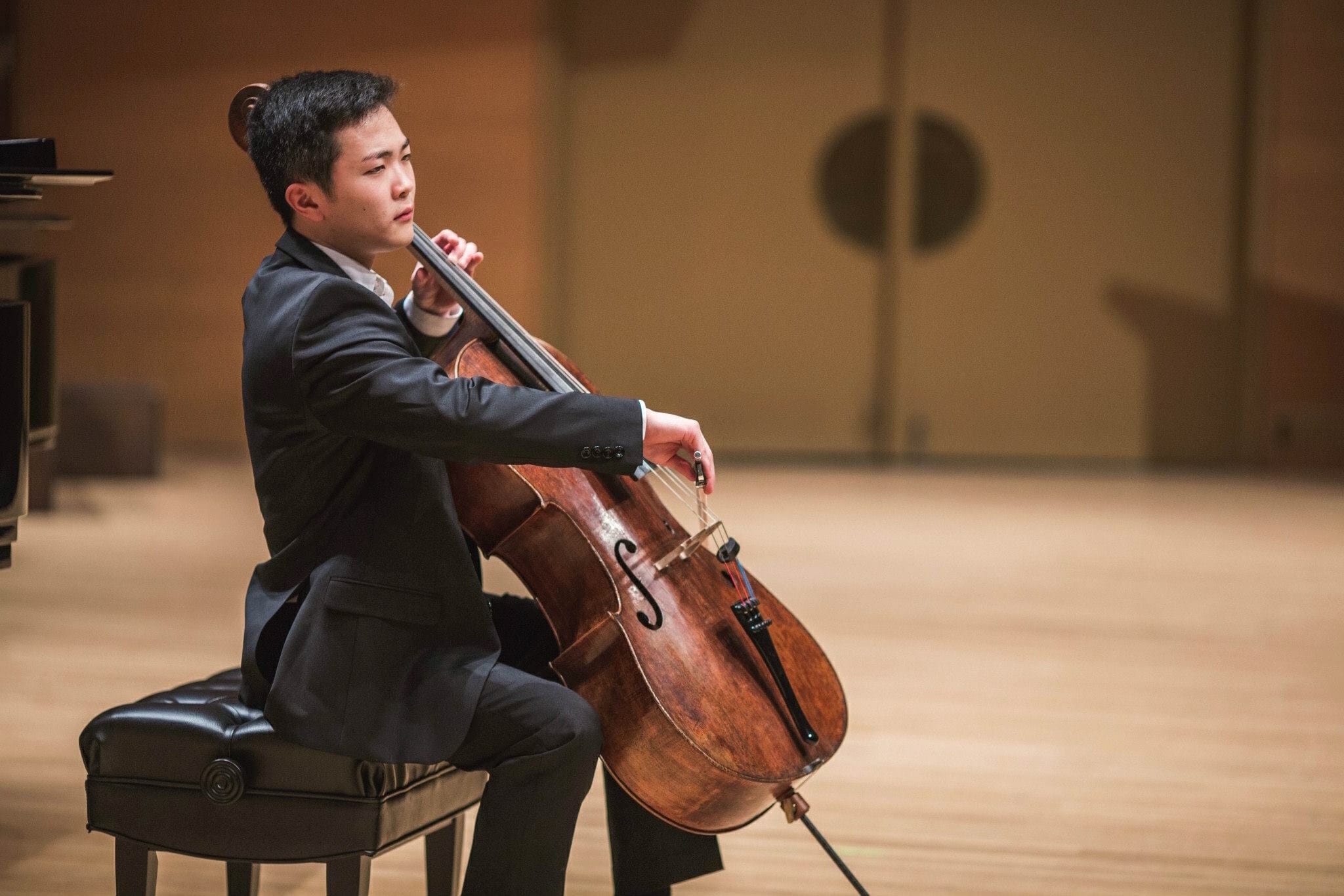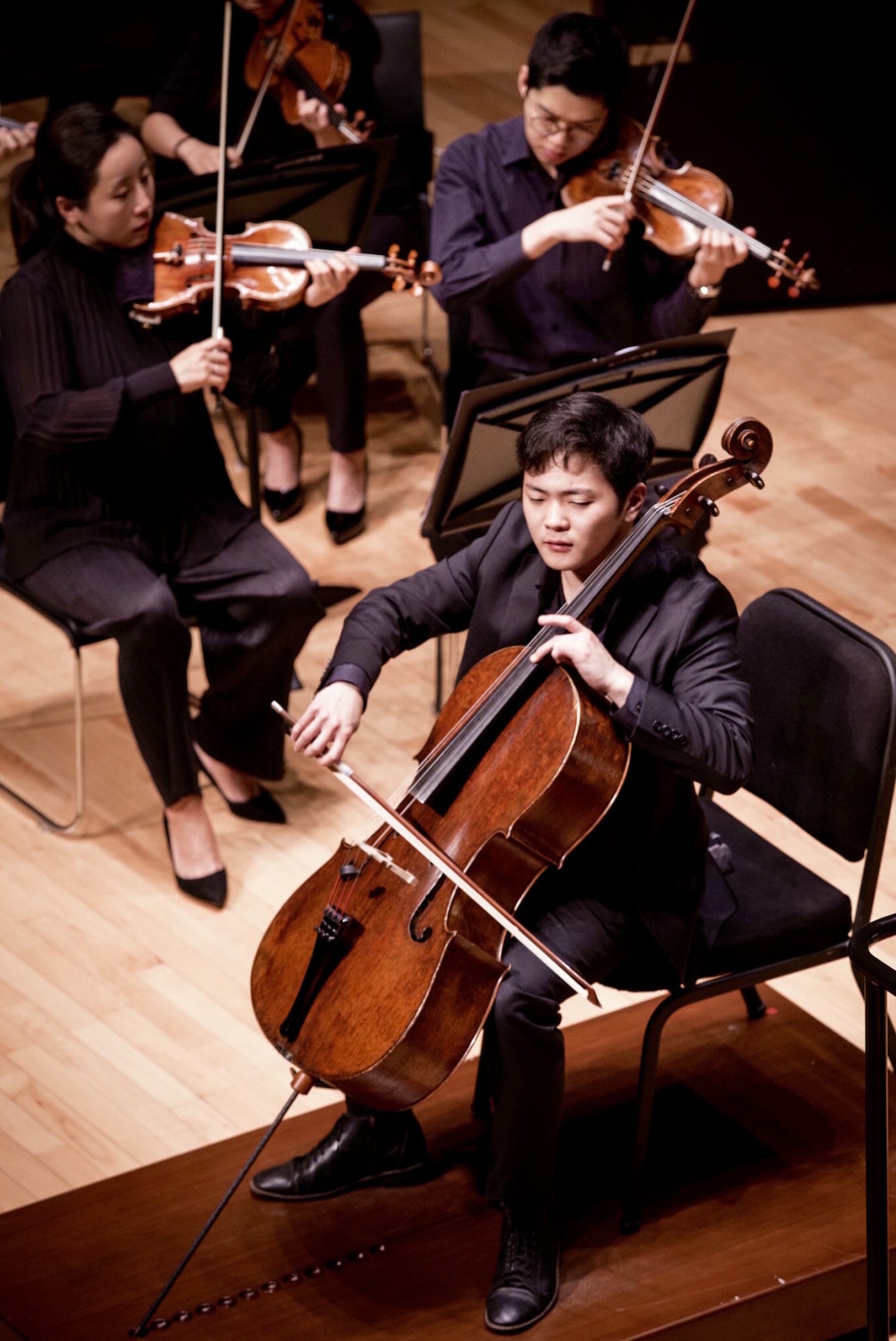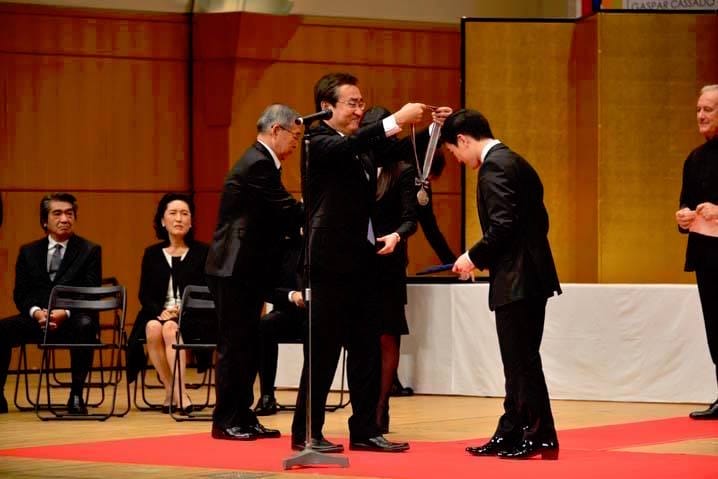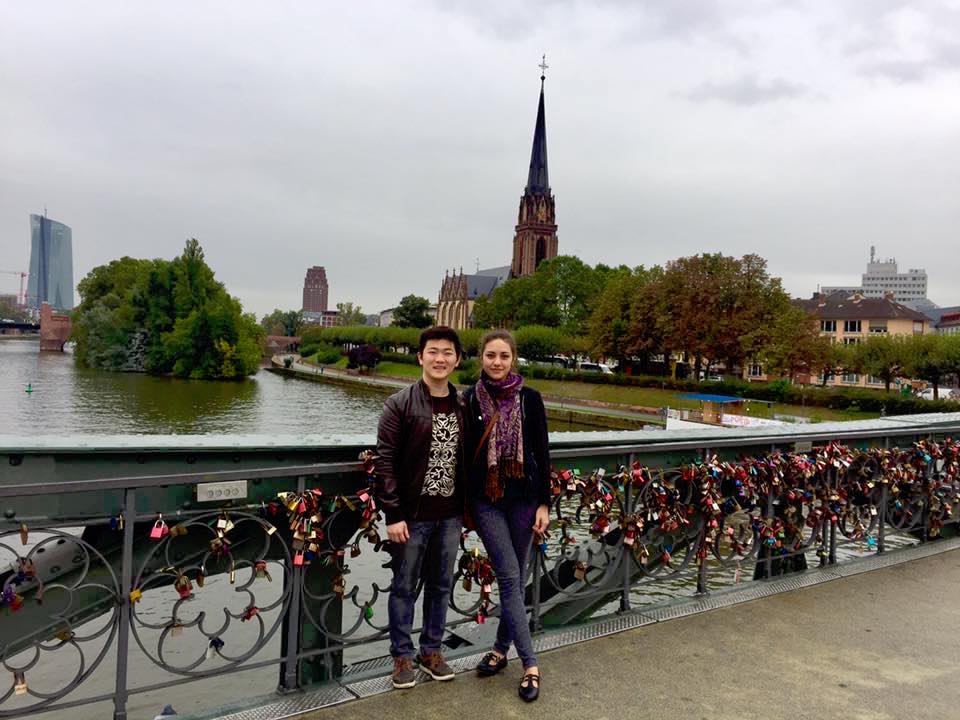This is a FREE Weekly event in Chicago. Below is a review of the November, 2016 event. Look for this same every Wednesday from 12:15- 1pm.
On November 16, 2016 cellist Brannon Cho performed for the weekly audience in Preston Bradley Hall for the Dame Myra Hess Concert series, also simulcast on WFMT. He was accompanied by pianist Victor Santiago Asuncion, a highly accomplished soloist, Steinway artist, and champion of chamber music. The duo performed works by Beethoven, Schubert and Tchaikovsky.
While the entire program selected by Cho was beautifully performed, it was the Tchaikovsky finale he had chosen to showcase his virtuosic talents, “Pezzo capriccioso”, that probably most compelled the audience to jump to its feet in a spirited standing ovation. Opening with a cello’s inimitable soulful pleading, it then moves over the next five minutes to a demanding close of steeplechase race intensity. Cho’s cello range was impressive. We felt as though we were glimpsing and hearing a Yo-Yo Ma or Pablo Casals level genius. “Bravo!” shouts came from audience corners. Cho then looked out and gave a broad smile, never quite losing an air of introspection. In a glance you could see that in part its Cho’s deep thoughtfulness that enlivens his cello, an instrument made in 1668 in Modena, Italy, by Antonio Casini.
Cho’s philosophical bent is also apparent when you get a chance to talk to him about the world, life or music. In a long conversation a week before this performance, Cho impressed this writer by how remarkably deep his thinking runs for someone of his years. For example, when asked the routine interview question inviting additional comments, Cho said, “It might not be appropriate for me to mention this. But in light of the election, I want to say that I’m presenting this program to the audience as a sort of message, saying, “It’s going to be okay.
“There is still beauty in the world, and in the country and many things to appreciate. I hope to bring optimism to the audience, which is important after such big events like this one and like September 11th.
“I think artists can play a big role in impacting audiences in light of such events—giving hopes, and warming peoples’ hearts. It’s a way of showing that there is light at the end of the tunnel.
“Politicians are unable to do this, no matter what they say in their speeches. Music has a different effect and can go straight to someone’s heart and give them inspiration deep down in ways that words never can do.”
As you read this, take another look at Cho’s youthful, almost cherubic, face. Yes, he IS young, still an undergrad at Northwestern’s Bienen School of Music, and must have been barely of school age when the 9/11 events he references occurred. You too may find yourself wondering, “Where does this preternatural wisdom come from?”
Atypical though he is both in term of world outlook and musical prowess, the particulars of Cho’s biography are those shared by many a suburban New Jersey boy. The younger son of two Korean-born parents who emigrated to America, schoolboy Cho’s focus was more on competitive swimming with a daily two hour training swim a cornerstone of his day from the age of 8 – 18 .
Neither Cho nor his parents had given much thought to his becoming a professional musician, but that began to change when he won a series of student cello competitions.
Cho recounts, “I had sort of an ordinary background. My parents aren’t musicians and my mother just figured it would be nice if me and my brother had something in our lives besides school and sports. I watched the Olympics of course, and I was taking swimming pretty seriously – in a swim club outside of school and later captain of my HS varsity team.
“We didn’t go to many concerts, even though I was close to New York. I wasn’t part of a Julliard pre-college program or anything like that. I didn’t have any connections or get a well-rounded musical upbringing, which is a challenge I still work to overcome.
“…Then in high school, when I was a sophomore, I won my first cello competition —First Prize in the 2012 Johansen International Cello Competition. That was pretty big, and I began to think this was my calling because I seemed to excel in cello the most. My parents though are the kind of people who like to see results first—they are driven people…Then there were actually a number of other competitions that I won and that was what convinced my parents that cello was really the thing for me…”
His parents were so convinced that they not only gave their blessing to Brannon’s career choice but sold their house, in part, to help pay for the world-class cello that he has brought to the many competitions he has won, and performances with some of classical music’s biggest rock stars such as touring with violinist Joshua Bell , or performing with Christian Tetzlaff and then Gidon Kremer in Germany.
Cho, who obviously works very hard to achieve these musical accomplishments, characteristically describes it more as “luck” and unexpected opportunity. For example, expanding on his European concert experiences of late he says, “This year I was able to perform with Christian Tetzlaff and then Gidon Kremer, which was a wonderful opportunity to learn about how they put together a performance and how they understood the music. We would rehearse together all the time and they would talk through some of the issues in the performance and how to fix them, and how to make a style for certain kinds of pieces. With Kremer we played a lesser known piano quintet by Weinberg, a composer from the mid-20th Century who lived in Soviet Russia…We worked a lot on how to bring out the anguish and pain in the music, and it was an especially great experience because Kremer himself had come from Soviet Russia and we were able to learn about the culture of that time from someone with first-hand experience…”
Heady as an experience like performing with these established musicians is, you also learn that making his first-time trip to Korea as an adult last summer to visit his elder relatives and cousins was perhaps for Cho an even deeper experience. Cho comments, “They treat you differently when you are older than a teenager and it was so nice to be able to talk about life with them and learn from their perspective of what matters most about life.”
In the same vein, and later in our conversation, Cho said, almost as if confessing to a gluttonous guilty pleasure, that when he isn’t studying for school or rehearsing, he loves to read books or watch documentaries about nature, science, history or timely topics such as a recent one he saw on the history of racism. Cho says, “..I enjoyed the documentary about racism today very much and always love learning about the outside world…Being a musician requires much practice and makes it more difficult to learn about these things…I love learning though…”
How intriguing to wonder where young Cho’s deep thoughts on life and dedication to music excellence will take him in the years to come. How noteworthy to notice how Cho, with his cello and his thoughtful observations of the world around him alike, does indeed communicate, “…it’s going to be okay.”
Click here to hear the WFMT recording of Cho and Asuncion’s performance.
The weekly free Dame Myra Hess concerts sponsored by the International Music Foundation and broadcast on WFMT bring us a parade of world-class rising star talents such as Brannon Cho. To read about other recent performers visit “Meet Dame Myra Hess Musicians– And Hear More.”
Photos courtesy of Brannon Cho, unless otherwise indicated.

